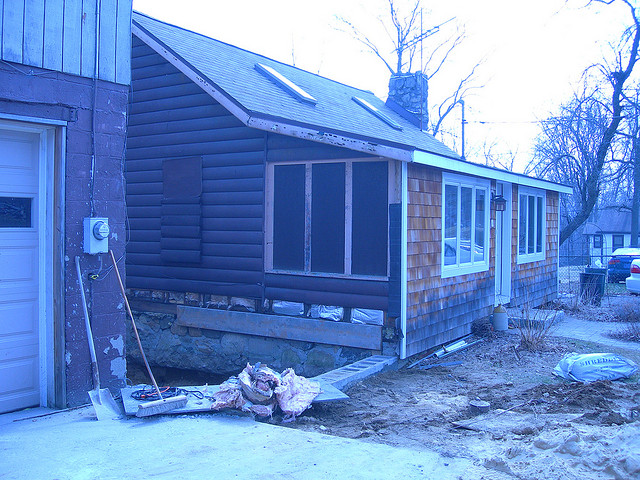

Q and A: How Can I Use a Personal Loan to Finance Home Renovations ?

Question: My house badly needs work, but I don’t think I have enough equity to pay for everything that way. My credit card limit could handle it, but that seems like an expensive way to pay for such big-ticket expenses. What are my other options for financing home renovations?
Answer: Most home owners know the feeling. Let’s say your furnace just blew. The roof is leaking. Or perhaps your energy bills are skyrocketing because of inadequate insulation.
Knowing what work needs to be done on your house is easy; knowing how to pay for it is harder, especially if you lack the equity in your home to consider a second mortgage. Under those circumstances, people too often either instinctively reach for their credit cards, or simply live with the problem. However, there may be a solution which is both more immediately effective and more cost-efficient in the long run: consider a personal loan for financing home renovations.
Seven reasons to consider a personal loan for financing home renovations
To be clear, a mortgage (either in the form of a home equity loan or a cash-out refinancing) is generally a cheaper way to pay for home renovations. Freddie Mac recently reported that 30-year fixed rate mortgages averaged a 4.20 percent interest rate; rates on shorter mortgages were even lower. In contrast, according to figures from the Federal Reserve, the average rate on a two year personal loan was just over 10 percent.
Even so, there are circumstances in which a personal loan may be your best option for financing home renovations. Here are seven reasons to consider it:
1.It gives you an option when you don’t have equity in your home. While you could wait to build up sufficient equity to borrow against, that could leave your ability to make renovations up in the air for a long time. For one thing, you would be at the mercy of fluctuations in housing prices, which have not been very dependable in recent years. For another thing, if you are in the early stages of your original mortgage, the bulk of your payments will probably be interest rather than principal, so building equity can be a slow process at first.
2.A shorter loan may save you money in the long run. While personal loans typically carry higher interest rates than mortgages, they also are often for shorter time periods. This will require you to make steeper monthly payments, but by paying back the money faster you may pay less interest over the life of the loan, despite the higher interest rate.
3.A personal loan is cheaper than credit card debt. While personal loan rates average just north of 10 percent, the average credit card balance is charged a rate of over 13 percent, according to Federal Reserve figures. So, if you need to borrow for a home renovation, a personal loan is likely to be cheaper than putting it on a credit card.
4.Personal loan terms are more structured than credit card debt. With a personal loan, you have a specific schedule showing how you will repay the loan over a fixed period of time. That helps impose structure on your budget. With a credit card, you can pay back very little, and may actually be adding new borrowing faster than you are paying down debt. This is the kind of thing that gets people into a long-term pattern of continual debt.
5.The right project can help you build equity. Unlike borrowing for items or experiences that are quickly disposable, a well thought-out home renovation can add value to your home, helping you to build equity to at least partially offset the debt you have taken on.
6.Energy efficiency can pay off. If your energy bills are too high because of old appliances, inadequate insulation, or outdated windows, you can very quickly cut those bills by making some energy-efficient updates. The added cash flow from the savings on these bills could more than offset the interest expense you have taken on with the loan – and last well beyond the term of the loan.
7.Safety issues may demand a timely resolution. If there is a serious structural or electrical issue with your home, it can be both safer and more cost effective to use a personal loan to address it now, rather than wait till you have a catastrophic problem later.
One test of whether a loan makes sense is if the useful life of whatever you are financing will last beyond the repayment term of the loan. If your home renovations are done correctly, that should be the case if you use a personal loan to finance them. The other test is whether you can look at a repayment schedule before you commit, and budget for exactly how you will meet your loan payments.If you can do that, then living with those loan payments may be considerably better than living with no heat, a leaking roof, or a drafty house.






